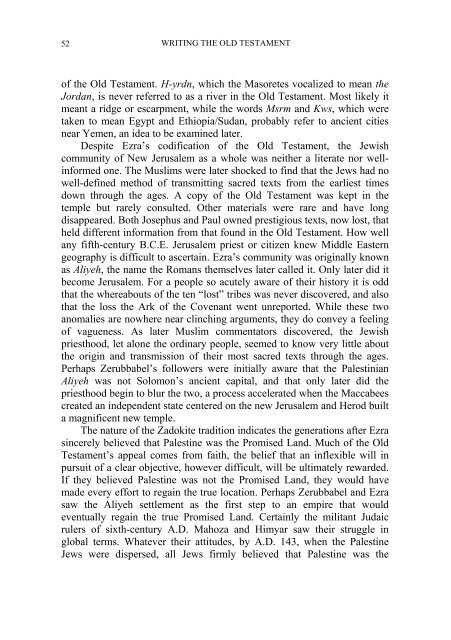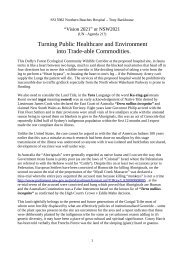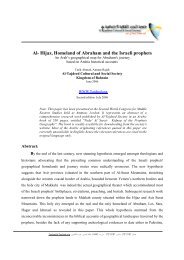Sheba
Sheba
Sheba
Create successful ePaper yourself
Turn your PDF publications into a flip-book with our unique Google optimized e-Paper software.
52<br />
WRITING THE OLD TESTAMENT<br />
of the Old Testament. H-yrdn, which the Masoretes vocalized to mean the<br />
Jordan, is never referred to as a river in the Old Testament. Most likely it<br />
meant a ridge or escarpment, while the words Msrm and Kws, which were<br />
taken to mean Egypt and Ethiopia/Sudan, probably refer to ancient cities<br />
near Yemen, an idea to be examined later.<br />
Despite Ezra’s codification of the Old Testament, the Jewish<br />
community of New Jerusalem as a whole was neither a literate nor wellinformed<br />
one. The Muslims were later shocked to find that the Jews had no<br />
well-defined method of transmitting sacred texts from the earliest times<br />
down through the ages. A copy of the Old Testament was kept in the<br />
temple but rarely consulted. Other materials were rare and have long<br />
disappeared. Both Josephus and Paul owned prestigious texts, now lost, that<br />
held different information from that found in the Old Testament. How well<br />
any fifth-century B.C.E. Jerusalem priest or citizen knew Middle Eastern<br />
geography is difficult to ascertain. Ezra’s community was originally known<br />
as Aliyeh, the name the Romans themselves later called it. Only later did it<br />
become Jerusalem. For a people so acutely aware of their history it is odd<br />
that the whereabouts of the ten “lost” tribes was never discovered, and also<br />
that the loss the Ark of the Covenant went unreported. While these two<br />
anomalies are nowhere near clinching arguments, they do convey a feeling<br />
of vagueness. As later Muslim commentators discovered, the Jewish<br />
priesthood, let alone the ordinary people, seemed to know very little about<br />
the origin and transmission of their most sacred texts through the ages.<br />
Perhaps Zerubbabel’s followers were initially aware that the Palestinian<br />
Aliyeh was not Solomon’s ancient capital, and that only later did the<br />
priesthood begin to blur the two, a process accelerated when the Maccabees<br />
created an independent state centered on the new Jerusalem and Herod built<br />
a magnificent new temple.<br />
The nature of the Zadokite tradition indicates the generations after Ezra<br />
sincerely believed that Palestine was the Promised Land. Much of the Old<br />
Testament’s appeal comes from faith, the belief that an inflexible will in<br />
pursuit of a clear objective, however difficult, will be ultimately rewarded.<br />
If they believed Palestine was not the Promised Land, they would have<br />
made every effort to regain the true location. Perhaps Zerubbabel and Ezra<br />
saw the Aliyeh settlement as the first step to an empire that would<br />
eventually regain the true Promised Land. Certainly the militant Judaic<br />
rulers of sixth-century A.D. Mahoza and Himyar saw their struggle in<br />
global terms. Whatever their attitudes, by A.D. 143, when the Palestine<br />
Jews were dispersed, all Jews firmly believed that Palestine was the




